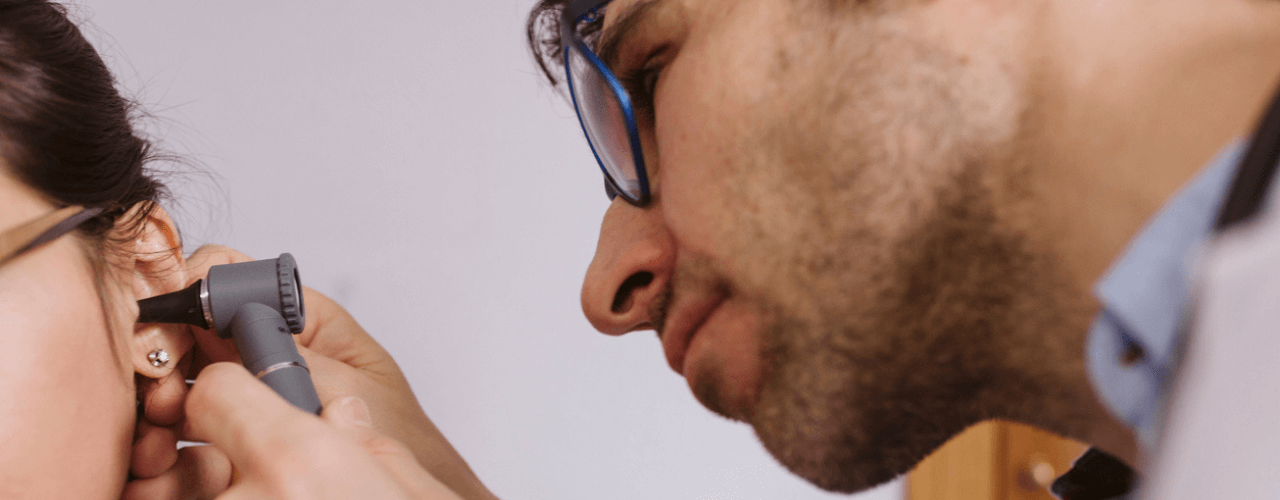Should You Stop Flying if You Have a Severe Ear Infection?
If you’ve ever noticed your ears popping when you take off or land in a plane then you might be wondering whether flying could be bad for your ears when you have an issue such as an infection. Keep reading to find out why it is best to avoid flying as much as possible when you have an ear infection.
How Does Flying Affect Your Ears?
Being on a plane can affect your ears in a couple of different ways that could cause problems if you have an ear infection or another condition such as tinnitus or a balance disorder.
One of the main issues with air travel is that the pressure inside the cabin is a little bit different to what we are used to in our daily lives. Although the air is pressurised inside most passenger aircraft (except for smaller planes or helicopters), the air pressure is slightly lower than usual. As the plan takes off, the pressure of the air outside your body drops a little. This can cause problems for your ears because they contain a small amount of air in the middle ear.
The air inside your middle ear will be at higher pressure than the air in the surrounding cabin. Some of the air will therefore need to be released through the Eustachian tube. You might hear your ears pop as this happens.
When the plane is on the way down, the pressure will change again in the opposite way. The air pressure in the cabin will increase so that it is higher than the pressure inside your middle ear. Air needs to be drawn in through the Eustachian tube in order to equalise the pressure again. This is usually harder than releasing air during take-off, so if you notice any problems with your ears failing to pop properly it is more likely to be when you are landing.
Another issue that can occur when you are flying is that the noise of the engines can make any hearing issues more difficult. You might struggle to hear over the background noise, even if you have a hearing aid. If you suffer from tinnitus, it could also be exacerbated by the loud environment. Wearing ear plugs and asking for a seat away from the engines may help.
Ear Infections and Flying
The engine noise shouldn’t cause any additional issues when you have an ear infection, but the changes in pressure can be more problematic. Ear infections can cause inflammation and a build-up of fluid inside your ears. This can affect the Eustachian tubes that connect your middle ear to the outside world. If there is too much fluid or the Eustachian tube is too narrow then air won’t be able to pass as easily into and out of your ear. When the plan takes off and lands, the pressure inside your ears won’t be able to equalise properly.
If this happens then your ears can feel uncomfortable as they won’t pop properly. In severe cases, this can actually be quite painful. You could also experience muffled hearing because the eardrum can be sucked inwards if the pressure inside your ears becomes lower than the surrounding air.
Sometimes it is possible to overcome these problems by yawning, sucking on a sweet, or swallowing. It can be particularly effective to close your mouth, hold your nose, and then swallow. These actions can clear your ears by opening up the Eustachian tubes a bit more so that air can pass through. However, if you have a severe ear infection this won’t be as effective as it usually is. If the ears are very swollen or full of fluid then you might have to endure the uncomfortable sensation until it passes or you land again. Your ears won’t be able to adapt to the changing air pressure in the cabin.
The worse your ear infection is, the more likely your ears are to get clogged up and experience these kinds of problems when you fly. When your ears are badly affected, it will take longer for the blockage to clear and the pressure in your ears to equalise.
In the worst cases, if the inner ear is sucked in by lower pressure inside the middle ear, it could cause lasting damage to your hearing. The eardrum can be placed under so much pressure that it ruptures. A burst eardrum can be very painful and it will take several weeks to heal. In severe cases, you might even need surgery to repair it. In very rare cases, the inner ears can be damaged when you fly with a bad ear infection. This could cause lasting damage to your hearing.
When Should You Avoid Flying?
Since travelling by plane can be very uncomfortable when you have an ear infection, it is best to avoid flying whenever you are feeling ill. It is especially important if the ear infection is making it harder to clear your ears as this means you are more likely to experience problems. If your ears feel full and blocked or you keep getting the sensation that they aren’t able to pop properly, then flying is probably going to make this worse. It is especially important for children to avoid flying with an ear infection as they are at higher risk due to having narrower Eustachian tubes.
If you must fly when you have an ear infection then you can reduce the risk of serious problems by making sure that you clear your ears several times as you take off and land. You can do this by chewing gum or swallowing. It might also help to use a decongestant or nasal spray before you fly as this can reduce the inflammation that is making your Eustachian tubes narrower. It is also a good idea to consult a doctor before you fly. You may be able to take medication such as antibiotics to speed up your recovery. The doctor can also check your ears and confirm whether it is safe for you to fly. If you have a very severe ear infection then it may be necessary to delay your travel plans to avoid serious problems.
To learn more about how we can help you, click here.











